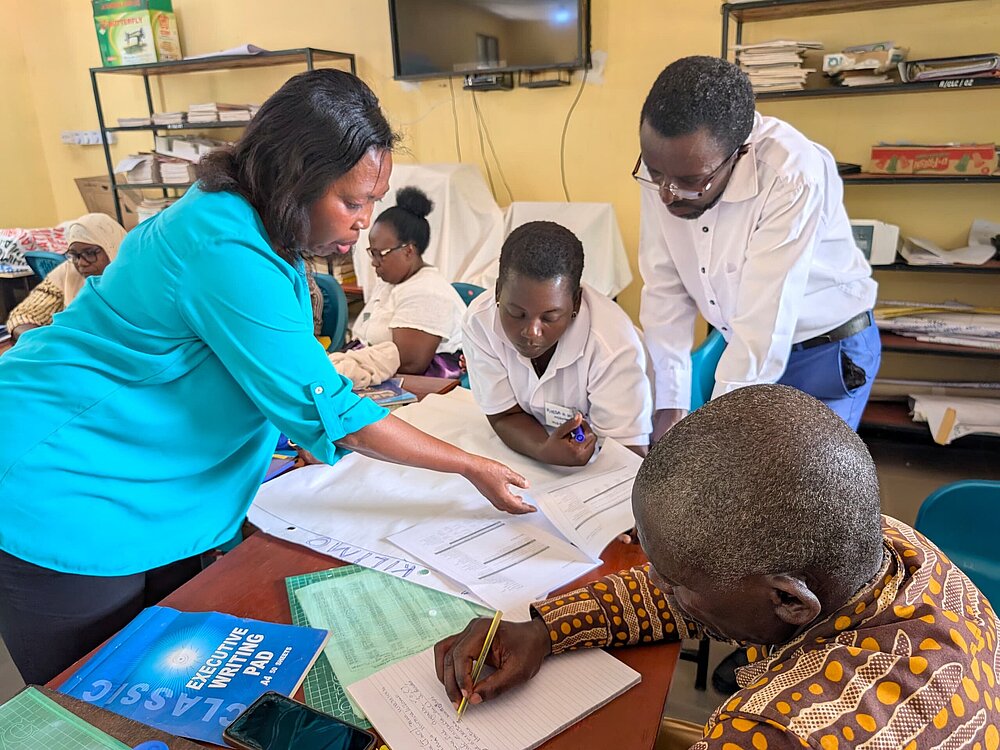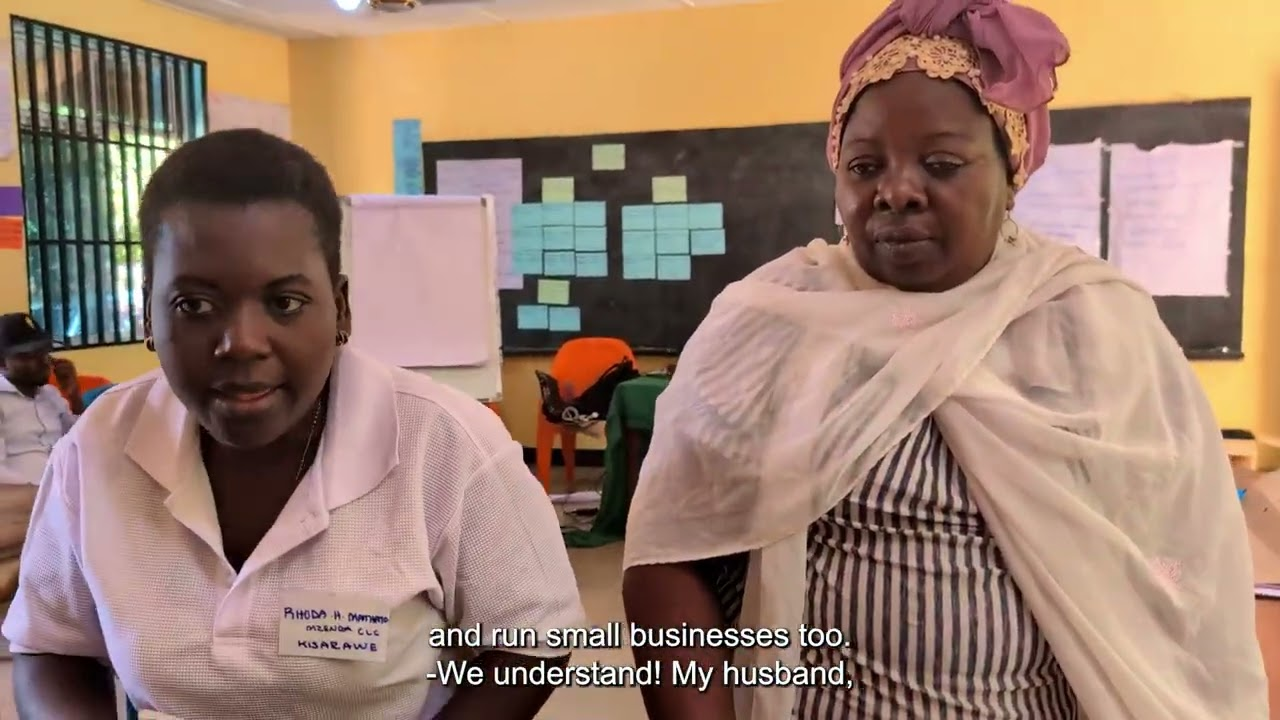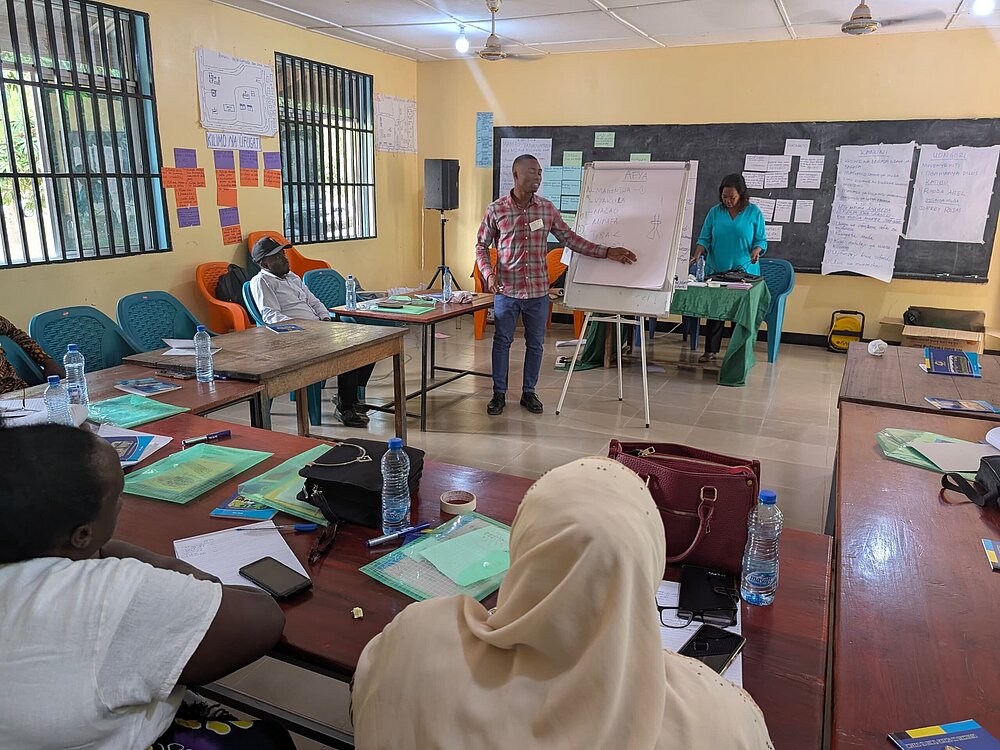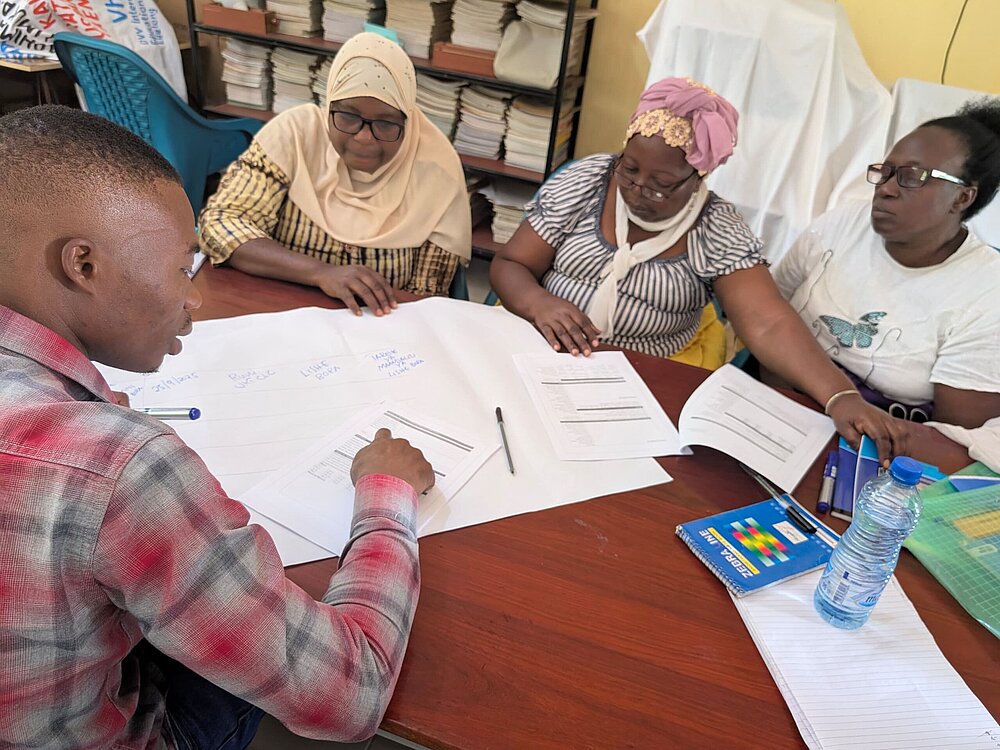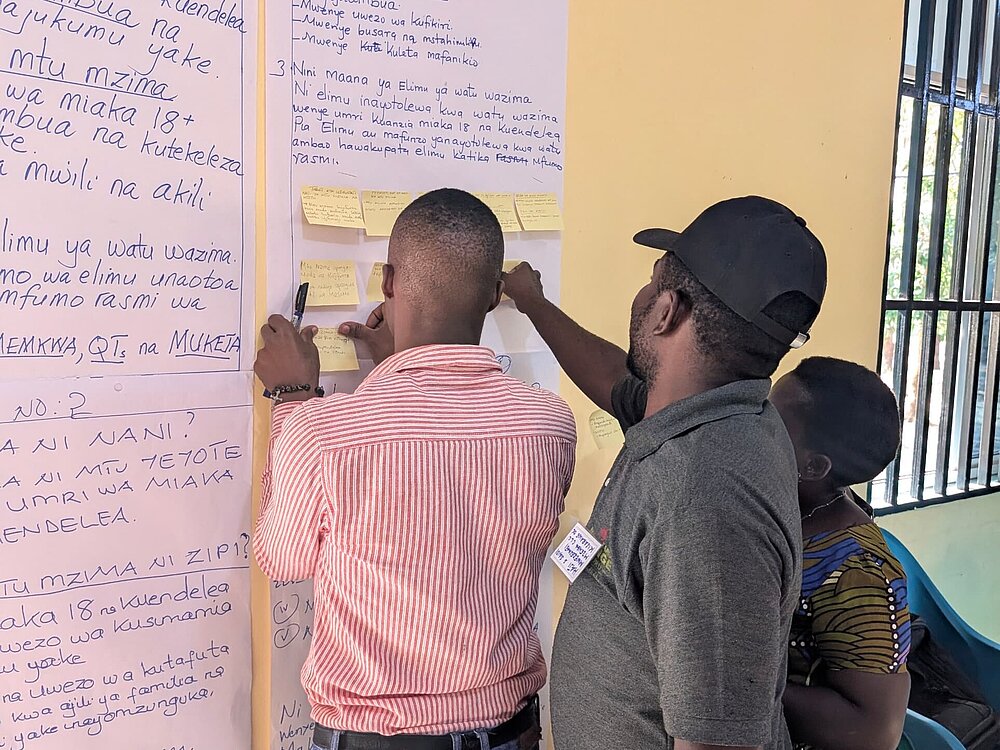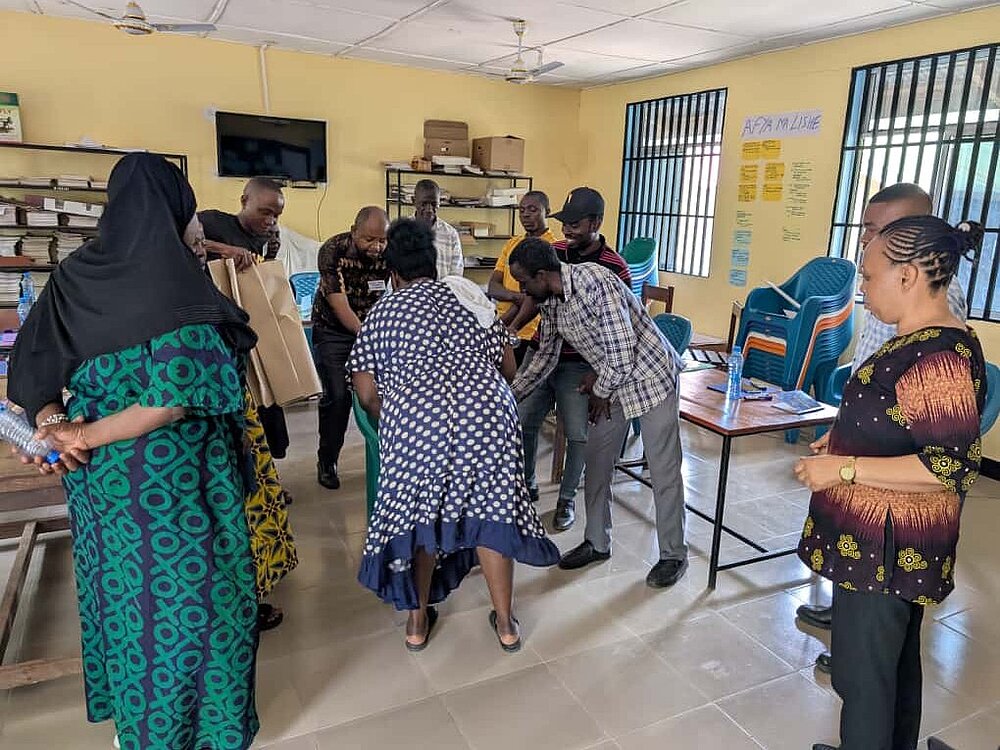In the push for community-led development in Tanzania, adult learning is the engine. But an engine needs a driver. On the frontlines of this work is the Community Facilitator (CF)—the single most important link between a community's learning needs and its tangible aspirations for a better life.
These facilitators are more than just teachers. They are mobilizers, mentors, and the vital connectors who bridge the gap between Adult Learning and Education (ALE) and real-world application. They are tasked with guiding fellow youth and adults through the process of turning new-found literacy and numeracy into practical skills, improved livelihoods, and stronger families.
Recognising that the success of the entire Integrated Community-Based Adult Education (ICBAE) programme rests on the shoulders of these dedicated individuals, DVV International facilitated this critical training. This wasn't just a workshop; it was an investment in the very people who make community empowerment a reality.
Empowering the Frontline
From September 22-26, 2025, the Ruvu JKT Community Learning Centre (CLC) in Kibaha buzzed with collaborative energy. DVV International, in partnership with the Institute of Adult Education (IAE and the District Adult Education Officers (DAEOs), brought together 10 Community Facilitators from Kibaha and Kisarawe districts.
Crucially, they weren't alone. They were joined by six sector experts—specialists in fish farming, gardening, and entrepreneurship. This mix was by design, transforming the training from a theoretical exercise into a practical planning session.
Over five intensive days, the facilitators were equipped with a re-energised toolkit. The training moved far beyond basic teaching methods to cover:
- Understanding the Adult Learner: Exploring the psychology of adult learning to design activities that respect the experience and motivations of community members.
- A Framework for Action: Mastering the REFLECT “Regenerated Freirean Literacy through Empowering Community Techniques” cycle, a participatory approach that moves learners from dialogue and analysis to collective action.
- Measuring What Matters: Gaining practical skills in using the LAMP scale to assess literacy and numeracy levels, allowing them to tailor support to individual learners' needs.
The most transformative part, however, was the direct collaboration with sector officers. Facilitators and experts worked side-by-side to co-design learning modules. Suddenly, literacy wasn't just about reading a book; it was about reading a pond maintenance guide. Numeracy wasn't just sums; it was about calculating profits for a small business.
“We no longer see literacy as just reading and writing," one facilitator reflected during the week. "It is a tool to improve our homes and livelihoods.”
The CLC: A Hub for Action
This newly strengthened capacity finds its home in the Community Learning Centre (CLC). A "one-stop centre" for lifelong learning. It’s the physical hub where services in ALE, livelihoods, entrepreneurship, and health converge.
But a hub is only as effective as the people who run it. An empowered Community Facilitator, supported by the CLC Management Committee and local sector experts, is the one who activates this space. They ensure the CLC is not just a building, but a dynamic platform for mobilization, training, and real-world problem-solving.
From Training to Transformation
The workshop's immediate outcomes are already clear. Each participating ward left with a concrete action plan that sequences learner recruitment, session schedules, and joint field demonstrations with the sector experts. The DAEOs and sector officers committed to providing ongoing mentoring, ensuring the skills from the training are put into practice.
This training at RUVU JKT CLC and Mzenga CLC serves as a powerful model. It proves that Tanzania’s ambitious goals for adult education are achievable, but they depend on consistent, quality delivery at the community level.
The way forward is clear: investing in Community Facilitators means investing in the success of our entire community. However, our efforts shouldn’t stop there. We also need dedicated support from the government and local authorities to provide these facilitators with honorary recognition. This will help keep them motivated and appreciated for the invaluable work they do within the community. As this training shows, when CFs are fully capacitated, they become the fulcrum that leverages adult learning into lasting, sustainable change for all.
See the Impact in Action
To see this work come to life, a short video accompanies this article. Watch the facilitators in action as they mobilize learners and teach hand-in-hand with local sector experts. We invite all our partners, stakeholders, and friends to watch and share this story of transformation.



